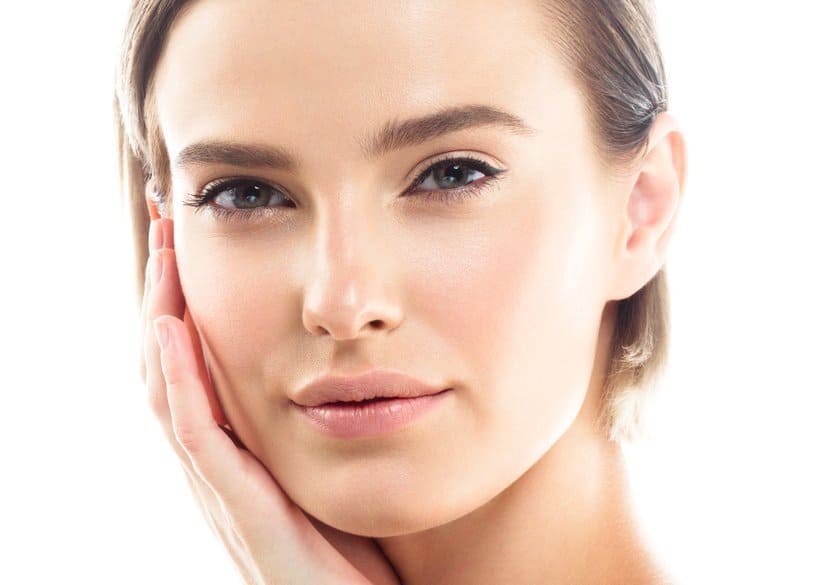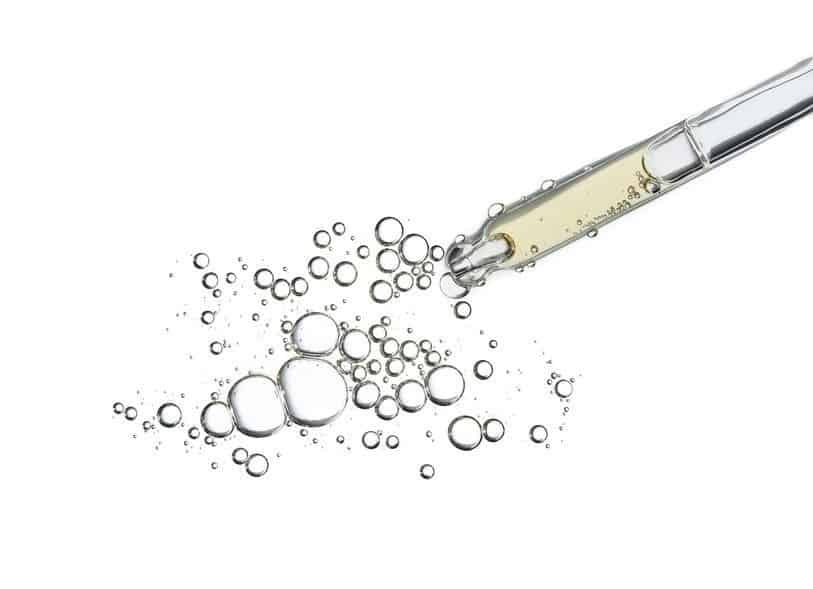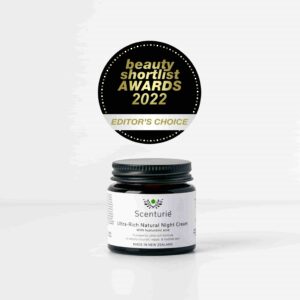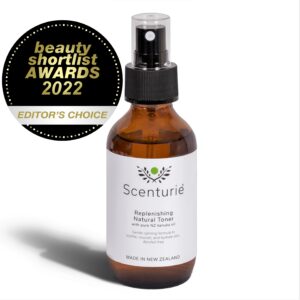Hyaluronic acid: The best kept secret for your skin!
In the world of beauty and skincare, there is always some new ingredient that generates a lot of buzz. Although it has been on the market for some time, the buzz about this ingredient does not seem to be dying down anytime soon. Hyaluronic acid is commonly featured in many skincare products such as serums, moisturisers, toners, supplements (and even injectables), and can prove to be a worthwhile addition to your daily skin-care regimen. The staying power of this naturally occurring molecule is due to its ability to combine with water to plump your skin and impart a soft, youthful texture. Glowing skin can be yours. Let us take a closer look at this in-demand ingredient…

What is hyaluronic acid?
Hyaluronic acid is a molecule that naturally occurs in the skin and connective tissues of the human body. 50% of the total hyaluronic acid present in the body is found in the skin. This power-packed polysaccharide provides cushioning and lubrication of our skin, joints, hair, nerves, and eyes. Its ability to attract, bind to, and retain water makes it very useful in the war on dry skin, and it is a valuable addition to skincare regimes.
As a powerful humectant, hyaluronic acid can draw and retain moisture, preventing it from evaporating into the air. It can hold up to 1000 times its weight in water giving it super hydrating qualities that provide a deep moisturising effect to skin.
Hyaluronic acid and skin ageing
Skin aging is a multifactorial process comprising two distinct and independent mechanisms: intrinsic and extrinsic aging. Youthful skin retains its smooth texture, elasticity, and resilience due to its high-water content. Daily stressors, in conjunction with the normal aging process, causes loss of moisture to the skin. The key molecule involved in skin moisture is hyaluronic acid, with its unique ability to retain water.
Like collagen and elastin, naturally occurring hyaluronic acid decreases as we age. Studies have shown a marked disappearance of hyaluronic acid in the epidermis (outermost layer of skin) while still present in the dermis (layer beneath the epidermis). The epidermis loses the principal molecule responsible for binding and retaining water molecules, resulting in loss of skin moisture. This contributes to the apparent dehydration, atrophy and loss of elasticity that characterises aging skin.

What are the benefits of hyaluronic acid in skincare products?
The ability to retain moisture and provide lasting hydration is a major reason why hyaluronic acid continues to be popular in the beauty and skincare industry. The benefits of this moisture retaining property in skincare products is discussed below:
1) Promotes moisture retention.
Hyaluronic acid penetrates the skin and binds water to skin cells, infusing all layers of the skin with valuable moisture. Most importantly it helps skin cells retain that precious moisture, leaving skin looking and feeling hydrated all day long.
2) Acts as a humectant.
A humectant is a water-loving substance that attracts, retains, and preserves moisture. The humectant properties of hyaluronic acids allow it to infuse the epidermis with moisture and then continue drawing moisture from the surrounding environment providing long lasting hydration to skin.
3) Helps prevent premature aging of skin.
It is common knowledge that the loss of moisture in the skin is capable of aging skin prematurely. The ability of hyaluronic acid to attract and retain moisture in the skin means that if we apply it as part of our beauty regime it helps to promote a hydrated, youthful, healthy complexion.
4) It is rapidly absorbed.
Unlike some of its counterparts in the beauty industry, hyaluronic acid is quickly and easily absorbed by the skin making it a highly efficient ingredient.
5) It is non-irritating to skin.
Hyaluronic acid is naturally present in our bodies and is generally safe for all skin types.
6) It combines well with other ingredients.
Hyaluronic acid can be paired with many other ingredients in skincare including retinol, bakuchiol, vitamins, peels, and other acids. The only exception to this is acids with low pH levels, such as glycolic acid, which can degrade hyaluronic acid and reduce its effectiveness.
Outside of beauty and skincare, hyaluronic acid can speed up wound healing by regulating inflammation within the body, can treat dry eyes, and hyaluronic supplements can treat joint problems.

Award-winning skincare products with hyaluronic acid
Scenturie’s Ultra-Rich Natural Night Cream and Replenishing Natural Toner are award-winning skincare products with hyaluronic acid. Packed full of essential vitamins, minerals, and fatty acids Ultra-Rich Natural Night Cream is easily absorbed and works to soothe, repair, and regenerate the skin overnight. Replenishing Natural Toner hydrates, balances, and calms the skin, leaving it feeling refreshed and re-energised.
What does the research show?
A study published in the Journal of Clinical and Aesthetic Dermatology in 2014 looked at the efficacy of low molecular weight topical hyaluronic acid preparations in the treatment of wrinkles, skin hydration, and skin elasticity in humans. Thirty-three (33) women were monitored for eight (8) weeks to test the anti-wrinkle properties. The results concluded that there was a statistically significant moisturising effect from products (whether lotions, serums, or creams) at each treatment interval. The depth of wrinkles was reduced by 40%, skin hydration increased by 96% and elasticity increased by up to 55% at the end of the eight (8) week period.
What role does diet play?
When considering your diet, there are a variety of nutrients that play a role in supporting the production of hyaluronic acid and in preventing its deterioration. Magnesium supports the body’s production of hyaluronic acid, the flavonoid naringenin inhibits its breakdown, and phytoestrogens work to increase its presence in the skin. Read more about the best hyaluronic foods for your skin here. A nutritious diet rich in antioxidants, including fresh fruit, vegetables, nuts, and seeds, will ensure you get enough nutrients to support the body’s production and maintenance of hyaluronic acid, and ultimately healthy skin.

Who can use hyaluronic acid?
Generally, hyaluronic acid is safe for use on all skin types. Hyaluronic acid is non-irritating and has not been found as a trigger for acne, rosacea, or any skin allergies. People who suffer from dry skin, or those of us with more mature skin, will gain the most benefit from products with hyaluronic acid because natural production of it by our bodies declines as we get older.
Prevention is the best strategy when it comes to skin ageing
Prevention is the best and most effective way to help work against extrinsic skin aging effects. The best prevention strategy to work against the harmful action of free radicals is a lifestyle with a balanced nutritional diet, good quality sleep, great self-care, regular physical exercise, and good stress management. Alongside this, a morning and night skincare routine using the best quality skincare products you can afford, will give your skin all it needs to glow.
The Final Word
Our skin is the largest organ in our bodies. It deserves great care and attention as we will wear it every day for the rest of our lives. The ability of hyaluronic acid to restore moisture to the skin, improve skins texture and elasticity, decrease the appearance of wrinkles, strengthen the protective barrier, and protect against environmental assault, makes it a very valuable addition to any skincare regime. With so many benefits, what could be preventing you from giving it a try? We encourage you to let this power-packed polysaccharide become part of your skin routine, and let your skin radiate with happiness and good health!

Hyaluronic acid: The best kept secret for your skin! Read More »






